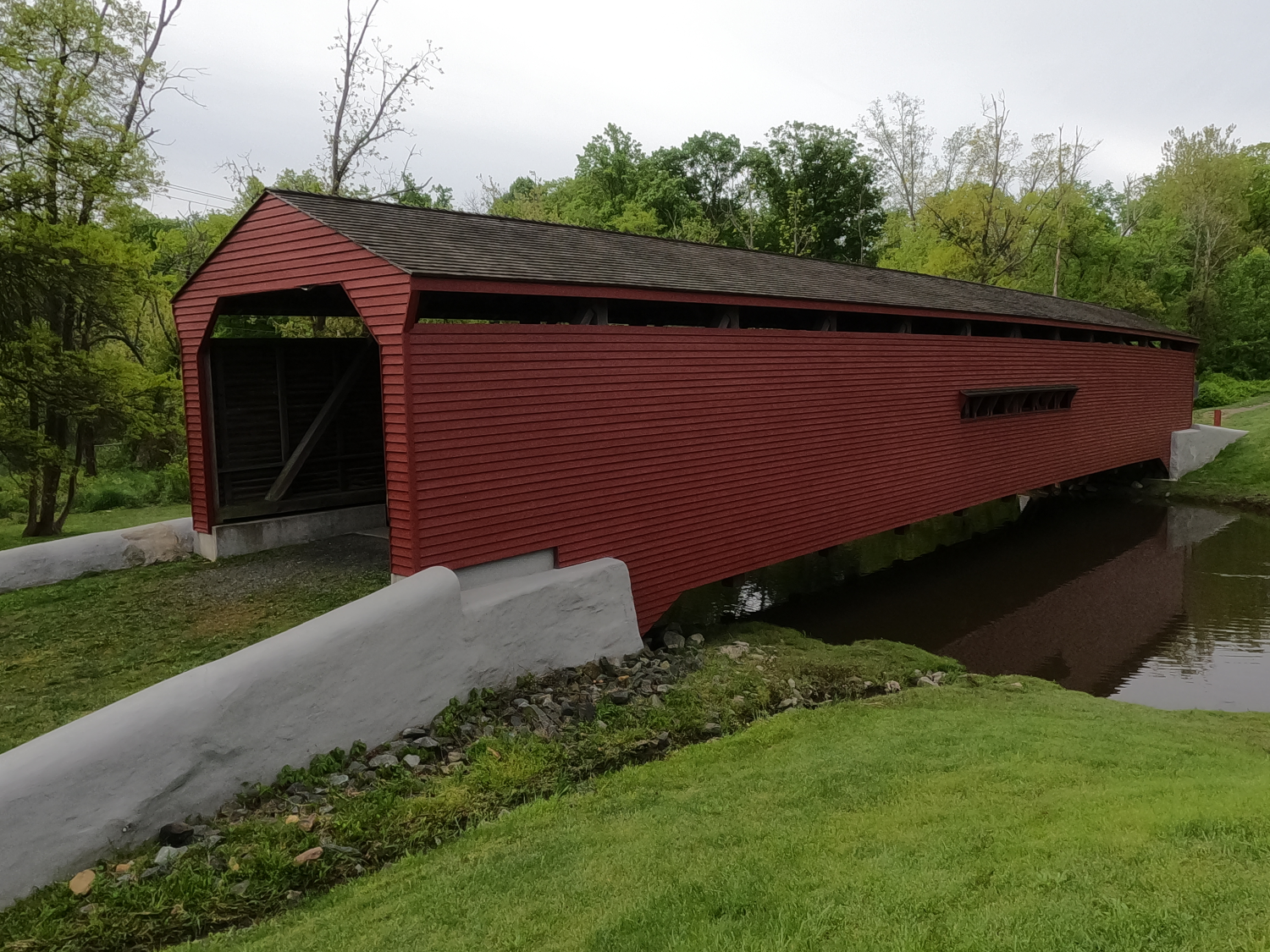
Gilpin’s Falls Covered Bridge
NBI Information
Location
State: Maryland
County: Cecil County
Feature Carried: Pedestrian Path
Feature Crossed: North East Creek
Latitude, Longitude: 39.6489,-75.9556
Structure Open, Posted, or Closed to Traffic: Open to Pedestrians
History
Year Built: 1860
Year Closed: 1936
Picture Date: May 2, 2023
Geometry
Lanes on Structure: 1
Lanes under Structure: 0
Number of Main Spans: 1
Main Structure Type: Truss - Thru
Main Structure Material: Wood or Timber
Condition
Bridge is not on the National Bridge Inventory
Bridge Information
The Gilpin's Falls Covered Bridge is the longest covered bridge still standing in the State of Maryland and is one of only six authentic covered bridges in the state. It is a Burr Arch Truss wooden covered bridge.
The bridge was built in 1860, and was located near several mills, including Samuel Gilpin's flour mill. This bridge notable survived all the floods in northeast Maryland in the mid to late 1800’s, which destroyed many other covered bridges and iron bridges.
The bridge was bypassed in 1936 when State Route 272 and the North East Road Bridge was constructed. The covered bridge was neglected for many years, until the city of Salisbury showed an interest in purchasing the bridge to move it to a city park in the early 1950’s. This effort failed, but it motivated Cecil County to save the bridge.
The roof of the bridge collapsed from a heavy snowfall in 1958, which spurred a major rehabilitation. The bridge was repaired using as much of the exiting wood as was possible, and a dedication ceremony was held in 1960. However, the bridge was not well maintained, and by the late 1980’s, it needed another rehabilitation.
In 1986, the state considered moving the bridge to another location as part of a widening project on the adjacent Route 272. However, a local citizen organized the Gilpin's Falls Covered Bridge Committee to keep the bridge at its current location. They were successful, and in 1989 the state provided funds for some repairs and turned the ownership over to Cecil County. Minor repairs were completed, including replacing the siding, repainting the bridge, and substructure repairs. However, there were not sufficient funds to perform a larger project, and the Cecil County Roads Department installed posts and chained fences at each portal entrance to keep out cyclists and pedestrians.
Additional damage was discovered in 1999 due to powder post beetles, and the estimated cost of restoration rose significantly. The Maryland Transit Authority agreed to pay for half of the project if Cecil County matched the funds. However, the county elected not to contribute, and the bridge appeared to be doomed. As time passed with no repairs or maintenance, the cost of these repairs continued to grow.
The Gilpin's Falls Covered Bridge Committee continued to raise money for preservation and resisted all talk about letting the bridge collapse. Their effort was rewarded in 2008 when the Federal Highway Administration awarded a large grant for rebuilding the bridge as part of the National Historic Covered Bridge Preservation program. Additional grants were received from the Maryland State Highway Administration and Maryland Historic Trust. These grants were contingent on all repairs being historically correct.
The construction work started in 2009 and lasted for almost a year. An additional painting project was completed in 2015 to protect the bridge.
References
National Park Service: https://www.nps.gov/crps/CRMJournal/Winter2011/research2.html
MD Covered Bridges: http://www.mdcoveredbridges.com/gilpinsfalls.html
















